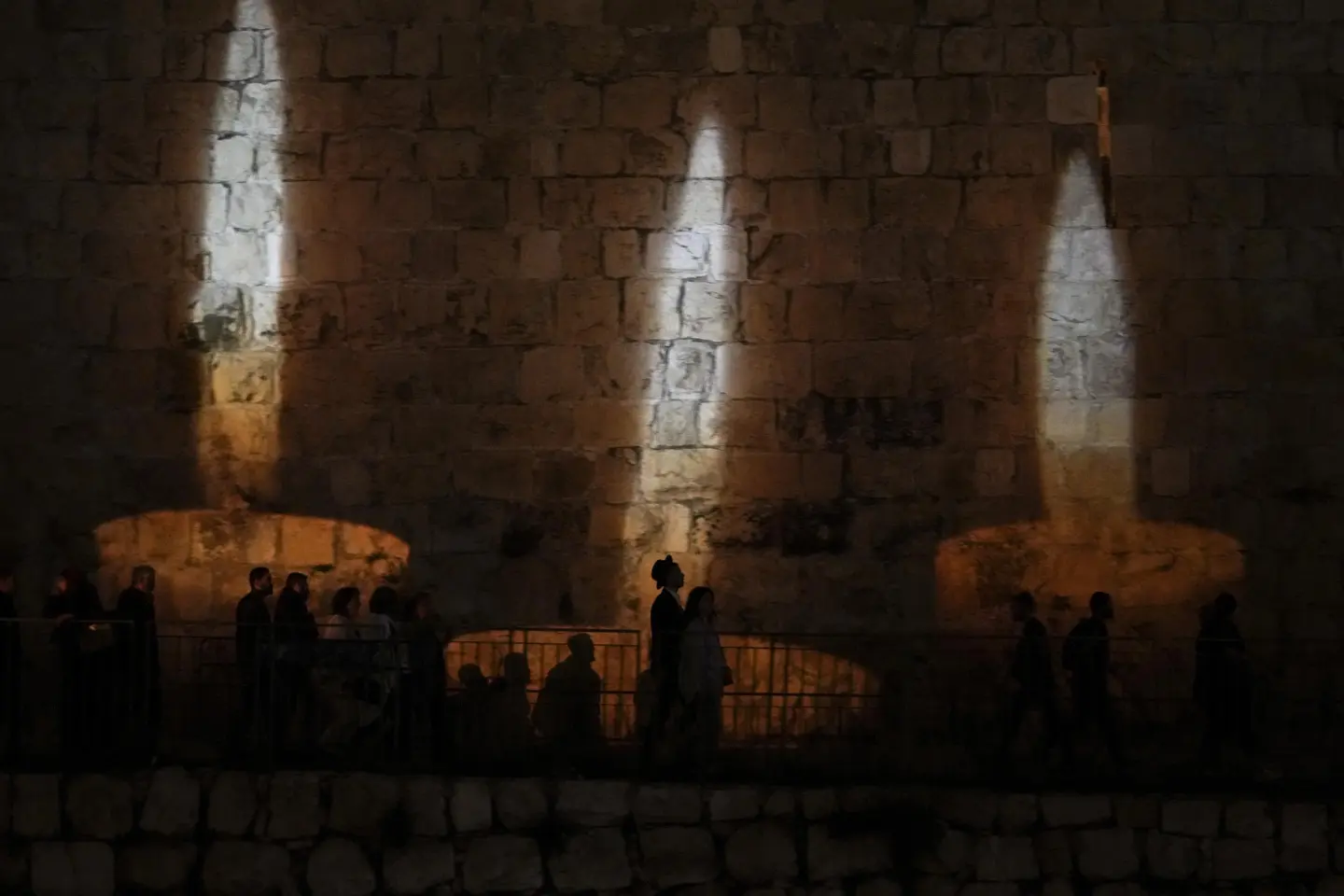Six Million Dead, One Nation in Denial: From the Holocaust to October 7
A quiet drive through the city stirs a journey through history, trauma, and unanswered questions about the past, present, and future of the Jewish people and the State of Israel.

There was a moment of quiet in the evening hours that blanketed the streets of Jerusalem. A kind of collective introspection seemed to take place. Even the hybrid Toyota driving ahead of me appeared to sense it, at least in my imagination, as I drove through the new tunnel from Herzog Street to the area near the Navon railway station and the central bus station. I messaged my friend:
"Only Holocaust Remembrance Day manages to calm us down in this country."
At the ultra Orthodox supermarket, business continued as usual. Everyone there was aware that the broader Israeli public was marking Yom HaShoah, but in a place where authentic Jewish culture is perhaps preserved more than anywhere else in Israel, there was no special atmosphere. On the way home, most shops were already closed, except for a small grocery store on Gaza Street, near what may be the most secure place in the country, the Prime Minister’s Residence. A sharp eyed security guard scanned the area and even checked my passing vehicle. The neighborhood's residents are used to it.
Earlier that morning, technically the eve of Holocaust Remembrance Day, I went with my good friend David from Miami to visit the ancient Zedekiah’s Cave. There, as if waiting for us, stood an Austrian tourist who had spent the last two months at Yad Vashem. We spoke at length about political science, history, current affairs, and her work at the museum. As we parted ways, she told me that even though she isn’t a professional historian, her research had led her to one firm conclusion: “I studied what the Germans and Austrians did, I read a bit, I’m not a professional historian, but one thing became clear. Those crimes can never be forgiven.”
She reminded David and me, as if we needed reminding, that Hitler was Austrian. We laughed at the reminder.
I told her that the German idea was to kill the Jews in order to kill God. She even admitted that a sign hangs in her living room that says “God is dead,” that well known Nietzschean phrase that, it seems, taught her nothing.
Along the way, I made sure to keep her laughing with nonstop jokes, only at the end to quote the late Robin Williams, about how “Shame Hitler killed all the funny people in Germany,” just to make her feel, the absence.
The Holocaust was the murder of a glorious culture. Pure Ashkenazi culture. Millions of the world’s wisest and most productive individuals, unmatched brilliance, perished. The rich and flourishing Yiddish culture, once at its peak, vanished. One and a half million children, as my grandmother used to say. What was their crime? They were murdered. That culture has no one left to truly remember it. And the curse Hitler cast on humanity still haunts Israel to this day. A heavy, lingering shadow.
One can only imagine what Jewish demographics would look like today with six million more Jews. What would Europe look like? What would the State of Israel look like? What would the world of yeshivot be? True, after the Holocaust, the Chazon Ish said we must rebuild, but can we truly say it’s the same?
I recall what my grandmother used to say. Sometimes you just have to put one foot in front of the other and keep going. It seems that’s what we did. We kept going. Life went on. We had to go on.
And yet, it’s impossible not to think about October 7. After we said “Never again,” and yet, it happened again. Has the State of Israel betrayed the historical mandate placed upon it? Just as the Yishuv did virtually nothing to save the Jews of Europe, and just like then, the world didn’t just remain silent. It encouraged the murder.
And what about Iran’s nuclear bomb? How many more Holocaust Remembrance Days will we mark while Iran continues its nuclear program, instead of eliminating the threat? It might sound banal, but so many unresolved questions are pushed into a vacuum by the weight of existence and the haze of political posturing, turning into chronic deferral.
It makes me wonder if the Toyota in front of me also stopped, even for a second, and pondered how, of all nights, this one reflects the collective procrastination that characterizes the Netanyahu era, a delay now deeply embedded in the fabric of Israeli life.
And then there's the damage. The intergenerational trauma, the countless faces, lives, and futures that vanished. How can one even begin to summarize that?
And perhaps that moment of calm I felt amidst all the noise, a moment that will likely fade from my memory in just a few days, behind the Toyota, was a kind of call for introspection. A call nearly impossible to hear in a country like Israel. And I think about the stories I heard from my grandmothers, and the ones I never got to hear from my grandfathers, and about their consequences, here in the Land of Israel, in our own time.